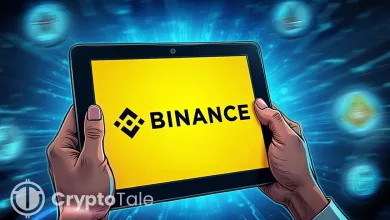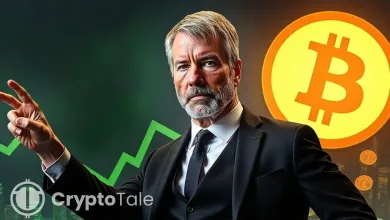Christine Lagarde Dismisses Bitcoin as ECB Reserve Asset

- Christine Lagarde says Bitcoin is not safe or stable enough for central bank reserves.
- The Czech National Bank may discuss adding Bitcoin but has not decided yet.
- Other European banks reject Bitcoin due to its risks and unpredictable value.
European Central Bank President Lagarde has dismissed the possibility of BTC entering central bank reserves. Speaking at a press conference on January 30, she emphasized that reserve assets must be “liquid, secure, and safe,” making Bitcoin ineligible. The statement came in response to comments by Czech National Bank Governor Ales Michl, who suggested his institution might consider Bitcoin as part of its reserves.
ECB Rejects Bitcoin Amid Czech Bank’s Consideration
Lagarde made it clear that the ECB’s General Council shares a consensus that Bitcoin does not meet reserve asset standards. “I’m confident that Bitcoins will not enter the reserves of any of the central banks of the General Council,” she told reporters in Frankfurt.
The remarks follow a statement by Michl to the Financial Times that the Czech National Bank’s board would discuss a proposal to allocate 5% of its reserves to Bitcoin. However, he later clarified on X that the plan is only at the “analysis and discussion” stage. Czech Finance Minister Zbynek Stanjura has also voiced reservations about the proposal.
Lagarde’s concerns align with broader ECB skepticism. The institution argues that reserve assets should be protected from risks related to illicit activities, volatility, and security concerns. She reiterated that policymakers view reserves as requiring safety and liquidity, which Bitcoin lacks.
Related: Stablecoins Offer Financial Growth, but Policy Doubt Lingers
Skepticism Across Europe as Bitcoin Gains Attention
The rejection of Bitcoin as a reserve asset is not exclusive to the ECB. Bundesbank President Joachim Nagel dismissed Bitcoin, calling it “digital tulips” in an interview with Platow Brief. He asserted that reserve assets should be transparent and stable, a standard he believes Bitcoin fails to meet.
Meanwhile, Switzerland has seen efforts to push for a nationwide referendum requiring its central bank to hold Bitcoin. Activists are gathering signatures to integrate Bitcoin into national reserves, similar to gold holdings. However, Swiss National Bank President Martin Schlegel downplayed cryptocurrency’s role, labeling it a “niche phenomenon” in November.
Some view Bitcoin as a hedge against economic instability as inflation concerns persist. However, the ECB’s firm stance suggests that major central banks remain cautious. Could Bitcoin gain broader acceptance as a reserve asset among global financial institutions?




